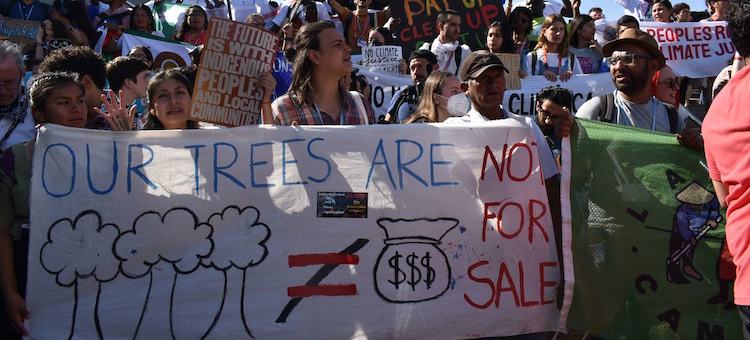By Bernhard Schell
SHARM EL-SHEIKH (IDN) — The Egyptian Presidency of the UN Climate Conference COP27 has launched a new initiative Food and Agriculture for Sustainable Transformation or FAST, to improve the quantity and quality of climate finance contributions to transform agriculture and food systems by 2030.
The cooperation programme will have concrete deliverables for helping countries access climate finance and investment, increase knowledge, and provide policy support and dialogue.
The UN Food and Agriculture Organization (FAO), along with other UN agencies, will be the facilitator of this initiative, which, according to Zitouni Ould-Dada, Deputy Director of the agency’s Climate and Environment Division, puts agriculture at the heart of efforts to tackle climate change.
While the agricultural and food sector is profoundly impacted by climate change, it also contributes around a third of global greenhouse emissions, from production to consumption, Mr Ould-Dada explained, saying that there must be a transformation of the agri-food systems.
He told UN News, “We can’t continue with the current model of producing food and then degrading the soil, declining biodiversity, affecting the environment. No. It must be sustainable”.
The expert highlighted that if the right choices are made, agriculture can be an important part of the solution to fight the climate crisis by sequestering carbon in soil and plants and promoting adaptation and resilience.
“We can’t produce the food to feed and nourish a growing population with the current model, with the threat of climate change. We can’t.”
The first thing the world should be tackling, he says, is addressing food waste, which is responsible for 8 per cent of global gas emissions.
“We have around 828 million people who go hungry every day. And yet, we throw away a third of the food that we produce for human consumption. We need to change our mindset, our production model, so that we don’t lose and waste food,” he emphasised.
He added that in terms of solutions, harnessing the power of innovation is crucial to reduce emissions, helping adapt agriculture to a changing climate, and making it more resistant against adversity, not only caused by climate change, but also by pandemics or war, such as the current situation in Ukraine.
“Innovation in the broader sense like precision farming where you have drip irrigation combined with renewable energy so that you have efficiency. But also, innovation harnessing traditional knowledge of smallholder farmers is also important, because it is happening all the time,” Mr. Ould-Dada emphasized.
Small-scale farmers from developing countries produce one-third of the world’s food, yet they only receive 1.7 per cent of climate finance even as they are forced to cope with droughts, floods, cyclones and other disasters.
This sentiment echoed through dozens of pavilions and conference rooms in Sharm el-Sheikh on November 12 as COP27 turned its attention to the vital issues of adaptation, agriculture and food systems in the context of climate change.
“We need to help rural populations build their resilience to extreme weather events and adapt to a changing climate. If not, we only go from one crisis to the next. Small scale farmers work hard to grow food for us in tough conditions,” Sabrina Dhowre Elba, Goodwill Ambassador for the UN International Fund for Agricultural Development (IFAD), said during a press conference.
Dina Saleh, the Regional Director of IFAD, explained that failure to help rural populations to adapt could have dangerous consequences, leading to longer poverty, migrations and conflict.
“This is why today we are calling on world leaders from developed nations to honour their pledge to provide the $100 billion a year in climate finance to developing nations and to channel half of that to have that amount to climate adaptation,” she underscored.
Thirteen years ago, at COP15 Copenhagen, developed nations made a significant pledge. They promised to channel $100 billion a year to less wealthy nations by 2020, to help them adapt to climate change and mitigate further rises in temperature. That promise, however, was not kept.
Ms Saleh cautioned that there is a “narrow window” to help rural poor people to survive and protect their communities, and that crop yields could reduce by as much as 50 per cent by the end of the century.
“The choice is between adapting or starving,” she warned, urging COP27 to be about action, credibility and justice for the invisible and the silent. [IDN-InDepthNews — 12 November 2022]
Image: Massive protest at COP27 demanding leaders to address vital issues realted to agriculture, adaptation and climate resilience. Credit: Laura Quinones


